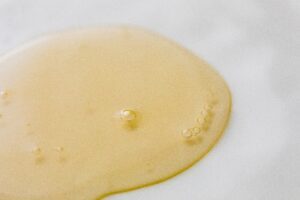The Real Deal

As the natural beauty products trend gains popularity, it’s important to separate fact from fiction. While some natural skincare practices can be beneficial, others can actually be harmful. Here are five natural skincare myths that you need to stop believing:
Myth #1: Natural Skincare Products Are Always Safe
One of the biggest misconceptions about natural skincare is that it’s always safe to use. Many people assume that because a product is made with natural ingredients, it’s automatically better for your skin. However, this is not always the case. Just because a product is labeled as “natural” doesn’t mean that it’s free from harmful chemicals or that it won’t cause an allergic reaction.
In fact, some natural ingredients can be irritating or even toxic if used in large quantities. For example, essential oils are a popular ingredient in many natural skincare products, but some oils can cause skin irritation or even chemical burns if not used properly. It’s important to read the ingredient labels on all skincare products and do research on any unfamiliar ingredients. If you have sensitive skin, it’s best to patch test a new product before applying it to your entire face.
Myth #2: Lemon Juice Can Cure Acne
Another common natural skincare myth is that lemon juice can cure acne. While lemon juice can be a helpful ingredient in some natural beauty products, it’s not a cure-all for acne. In fact, using lemon juice on your skin can actually make acne worse. Lemon juice is highly acidic, which can disrupt the skin’s natural pH balance and lead to irritation. Additionally, the sun exposure that is often recommended for using lemon juice on the skin can actually increase the risk of sun damage.
Instead of relying on lemon juice to cure acne, it’s important to use products that are specifically designed to treat acne. Look for products that contain salicylic acid or benzoyl peroxide, two ingredients that are known to be effective in treating acne. And as always, be sure to follow a consistent skincare routine that includes cleansing, moisturizing, and sun protection.
Myth #3: You Should Always Exfoliate Your Skin
Exfoliating can be a helpful way to remove dead skin cells and promote healthy skin renewal. However, over-exfoliating can actually damage your skin. When you exfoliate too frequently, you can strip your skin of its natural oils and cause irritation. This can lead to dryness, redness, and even breakouts.
It’s important to find the right balance for your skin type and exfoliate no more than once or twice a week. If you have sensitive skin, you may want to opt for a gentle exfoliator that’s designed for daily use. And as always, be sure to follow up with a moisturizer to help protect and nourish your skin.
Myth #4: Coconut Oil Is a Miracle Skincare Ingredient
Coconut oil has gained popularity as a natural skincare ingredient, but it’s not always the best choice for every skin type. While coconut oil can be moisturizing, it’s also highly comedogenic. This means that it can clog pores and lead to breakouts, especially for those with oily or acne-prone skin.
If you have dry skin, you may benefit from using coconut oil as a moisturizer, but be cautious and use it sparingly. And if you have oily or acne-prone skin, it’s best to avoid coconut oil altogether and opt for a non-comedogenic moisturizer instead.
Myth #5: Natural Skincare Products Always Work Better Than Synthetic Ones
Finally, there’s a common belief that natural skincare products always work better than synthetic ones. While natural ingredients can be beneficial, they’re not always more effective than synthetic ones. Synthetic ingredients are often developed with specific skincare concerns in mind, and they can be just as effective as natural ones.
Additionally, natural skincare products can be less stable than synthetic ones, meaning they may not have as long of a shelf life. This can be problematic if you’re using a natural product that has expired, as it may not be as effective and can even be harmful.
In Conclusion
Natural skincare can be a great way to take care of your skin, but it’s important to separate fact from fiction. Remember that natural doesn’t always mean safe or effective, and it’s important to do your research and read ingredient labels before trying out a new product. Additionally, it’s important to follow a consistent skincare routine that includes cleansing, moisturizing, and sun protection to keep your skin healthy and glowing.

